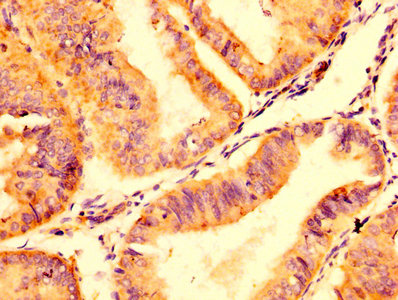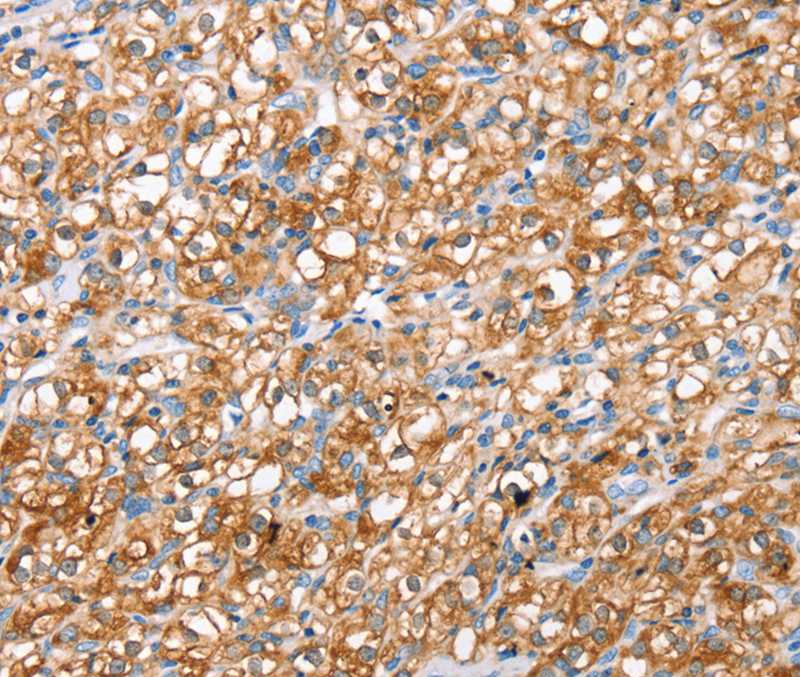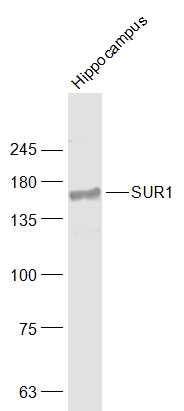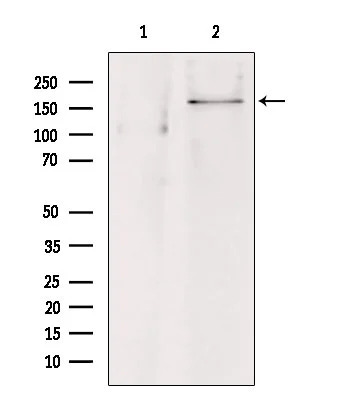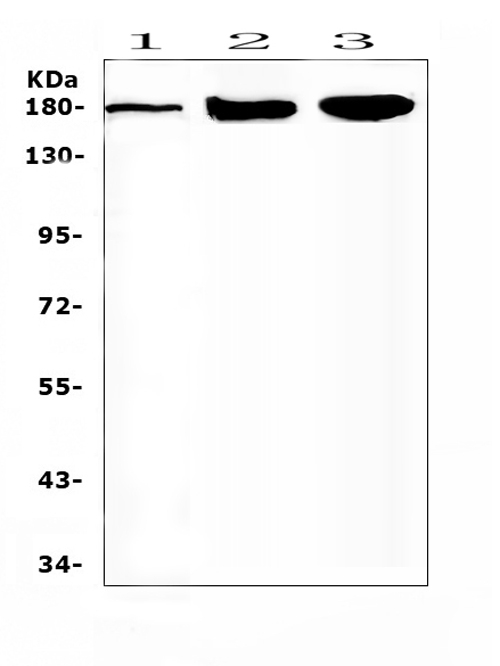
WB analysis of human cerebellum lysate using GTX88616 SUR1 antibody, C-term. Dilution : 0.5μg/ml Loading : 35μg protein in RIPA buffer
SUR1 antibody, C-term
GTX88616
ApplicationsWestern Blot
Product group Antibodies
ReactivityHuman
TargetABCC8
Overview
- SupplierGeneTex
- Product NameSUR1 antibody, C-term
- Delivery Days Customer7
- Application Supplier NoteWB: 0.5-1.5microg/ml. *Optimal dilutions/concentrations should be determined by the researcher.Not tested in other applications.
- ApplicationsWestern Blot
- CertificationResearch Use Only
- ClonalityPolyclonal
- Concentration0.50 mg/ml
- ConjugateUnconjugated
- Gene ID6833
- Target nameABCC8
- Target descriptionATP binding cassette subfamily C member 8
- Target synonymsABC36, HHF1, HI, HRINS, MODY12, MRP8, PHHI, PNDM3, SUR, SUR1, SUR1delta2, TNDM2, ATP-binding cassette sub-family C member 8, ATP-binding cassette transporter sub-family C member 8, ATP-binding cassette, sub-family C (CFTR/MRP), member 8, sulfonylurea receptor (hyperinsulinemia), sulfonylurea receptor 1
- HostGoat
- IsotypeIgG
- Protein IDQ09428
- Protein NameATP-binding cassette sub-family C member 8
- Scientific DescriptionThe protein encoded by this gene is a member of the superfamily of ATP-binding cassette (ABC) transporters. ABC proteins transport various molecules across extra- and intra-cellular membranes. ABC genes are divided into seven distinct subfamilies (ABC1, MDR/TAP, MRP, ALD, OABP, GCN20, White). This protein is a member of the MRP subfamily which is involved in multi-drug resistance. This protein functions as a modulator of ATP-sensitive potassium channels and insulin release. Mutations and deficiencies in this protein have been observed in patients with hyperinsulinemic hypoglycemia of infancy, an autosomal recessive disorder of unregulated and high insulin secretion. Mutations have also been associated with non-insulin-dependent diabetes mellitus type II, an autosomal dominant disease of defective insulin secretion. Alternatively spliced transcript variants have been found for this gene. [provided by RefSeq, Dec 2013]
- ReactivityHuman
- Storage Instruction-20°C or -80°C,2°C to 8°C
- UNSPSC41116161

